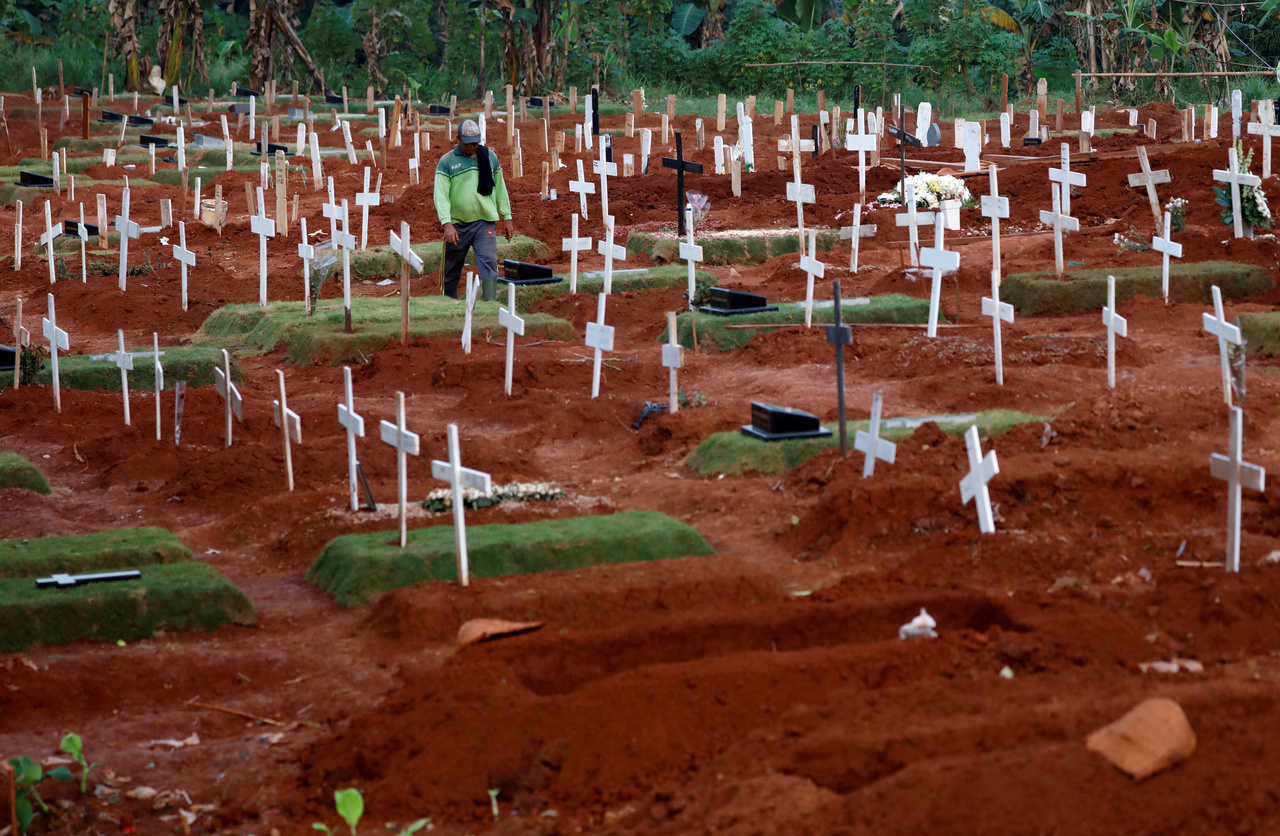Jakarta's burial data adds to hopes that coronavirus outbreak coming under control
Sign up now: Get insights on Asia's fast-moving developments

Jakartans laid to rest 4,377 of its deceased last month.
PHOTO: REUTERS
Follow topic:
JAKARTA - The tally of burials in Jakarta for April is adding to hopes that tough measures to slow the spread of the coronavirus in the capital are working, analysts said.
Jakartans laid to rest 4,377 of its deceased last month, not far off March's tally of 4,422 - the highest in at least a decade, the Jakarta's Parks and City Forests department said on Friday (May 1).
On one hand, the data paints a grim picture - official tallies may not be keeping up with the surge in Covid-19 deaths as potentially thousands of patients die before test results return from overburdened laboratories or never make it to hospital.
The data showed that the death toll over the last two months was more than 2,850 greater than the same period a year earlier. Burials in February were 2,744. Indonesia uncovered its first official coronavirus infection on March 2.
Officially, Covid-19 claimed 371 lives in the city of 10 million last month, out of 792 nationally.
On the other hand, the data suggests the outbreak is not spiralling out of control as many had feared. A study released by the Brookings Institution in February had said that even in a mild scenario, the coronavirus outbreak may claim more than 600,000 lives in Jakarta.
"It suggests that the true toll from Covid-19 is not necessarily trending upward from March," said Mr Kevin O'Rourke, author of the Reformasi Weekly newsletter, referring to the burial data.
To be sure, other factors may be at work.
The outset of the epidemic treatment was centred in Jakarta, which in turn puts pressure on the capital's cemeteries when patients did not pull through.
And death in Jakarta does not necessarily mean interment in its cemeteries. Wealthier families tend to prefer plots in neighbouring West Java and Banten, about an hour's drive away, potentially keeping a lid on the number of burials the capital saw last month.
Health guidelines require Covid-19 victims and those suspected of having had it be buried within four hours of death, with the remains wrapped in plastic to cut the risk of contagion.
Nearly 1,600 burials in Jakarta were conducted this way through April 30. Officials stress that not all had the virus.
Still, a closer inspection of April data shows that infection rates and the number of deaths linked to the virus in Jakarta appear to be contracting.
Averaging 57 per day during the first seven days of April, the so-called Covid-19 protocol burials had shrunk to 33 by the final week, according to Jakarta government data.
By the end of April, Jakarta was adding fewer new infections too, averaging 90 during the final week, compared with 105 at the beginning.
Jakarta's non-essential businesses like gyms and restaurants have been closed since mid-March. Most people wear masks and hand sanitisers are a common sight in the grocery stores that remain open, helping account for the apparent slowdown in infection, said University of Indonesia epidemiologist Pandu Riono.
But Dr Pandu worries the epidemic may be entering a more challenging phase - spreading out of the big cities and into hard-to-reach villages, where medical services are scarce.
The government of President Joko Widodo waited until last week to seal off the capital, grounding all commercial flights and suspending train services in the process. Drivers are stopped and turned back unless they can show they have a valid reason for needing to leave the capital.
Experts worry that the measures came too late.
In West Java, Indonesia's most populous province and home for many of Jakarta's migrant labourers, infections doubled during the second half of April to more than 1,000.
The country recorded nearly 10,600 infections as of Friday - an understatement of the true case load, Dr Pandu said. He said the peak will come in early June.
Indonesia may avoid the worst-case scenarios feared at the onset of the epidemic, relative to other big countries like the United States, which recorded one million infections.
But the true toll of the epidemic is still a mystery, Dr Pandu said.
"The infection data we're getting is only the tip of the iceberg."

